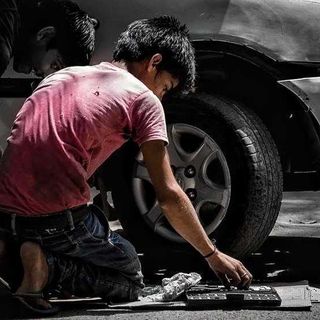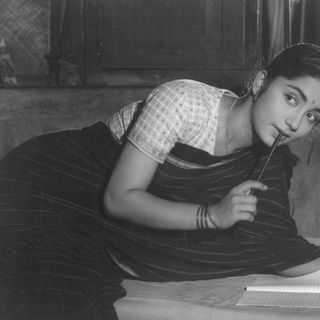Gather around, for the youth of India has spoken. Kindly leave any expectations of progressivism from young, evolving minds at the door.
In an eight-city survey carried out by Mumbai-based women’s non-profit Akshara Centre, 6,428 young men and women of India were asked to share their beliefs about a variety of gender-related issues, such as gender discrimination, masculinity, queer sexualities, violence against women and women’s work, both paid and unpaid. The results of this survey, conducted in Mumbai, Delhi, Chennai, Kolkata, Vijayawada, Ludhiana, Ahmedabad, and Bhubaneshwar, show that India’s predominantly young population — especially men — doesn’t bring with it contemporary ideas of gender norms (or the elimination thereof), especially in practice.
Of the 3,364 urban men aged 15 to 29, almost half subscribe to the regressive belief that women who wear short clothes are inviting rape and harassment. While greater discourse about the harms of victim-shaming has been conducted by women’s rights activists on social media and on the streets, especially in light of the #MeToo movement, it doesn’t look like any progress is permeating the psyche of the young Indian man.
In line with age-old ‘family values,’ 42.6% of the surveyed men also said women should be able to tolerate violence if it means keeping the family together. 48.8% of the surveyed men said women shouldn’t perform the last rites of their fathers; almost half believed boys are better at math and computers; half said they didn’t think women could handle running the home and doing paid work at the same time; half again said they’d like women to be homemakers.
For the record, women do a majority of the unpaid work in the home — care work and housework — amounting to 312 minutes per day, as compared to men who average out at 29 minutes per day. A mere 1.5% of respondents said they considered basic home duties, such as cooking and cleaning, as their responsibilities, too; the rest reported they were happy limiting their domestic contributions to paying bills and changing bulbs — and grunting on the couch, one assumes.
But, as all genders are products or victims of the patriarchy, many of the gendered beliefs held by men were also held by women respondents. For instance, 23.5% of women agreed women can’t run the home and do paid work at the same time. This, of course, is true as long as men refuse to share the burden of carework and housework; the time available to women to work both in and out of the house is insufficient. The solution here is not to confine women to the home, but to ask men to step up more.
But one issue both men and women equally agreed over was sexuality: almost half of both men and women said they were opposed to homosexuality — but funnily enough, they were also in agreement that people belonging to the third gender should receive equal opportunities in society.
Related on The Swaddle:
Why Parents Are Statistically Less Happy Than Non-Parents
Among the cities surveyed, Mumbai, often considered the hub for progressivism, ranked the lowest in the gender equality acceptability index — i.e. it is home to the least number of survey respondents vocalizing their acceptance for gender equality. Mumbai, in this regard, ranked even lower than Ludhiana, which surveyors found was the most “gender-discriminant” city evaluated — i.e. a majority of respondents in Ludhiana held discriminatory beliefs against women’s identity and role. Kolkata appeared to be the most “gender-equitable.”
“There is no doubt we need change, as ours is a very unequal and differentiated society with one group racing ahead and the other far behind. Unless we know what young people are thinking, how can we speak about change?” Nandita Shah, co-director of Akshara Centre, told The Hindu. Recognizing the need for systemic change, Shah added, “But no one agency can do this, it has to be the collective effort of society, of the community of young people acting for equality; the mass media projecting better role models, the police and legal system working effectively, the corporates hiring more women and keeping them safe from harassment and the family supporting their daughters.”




